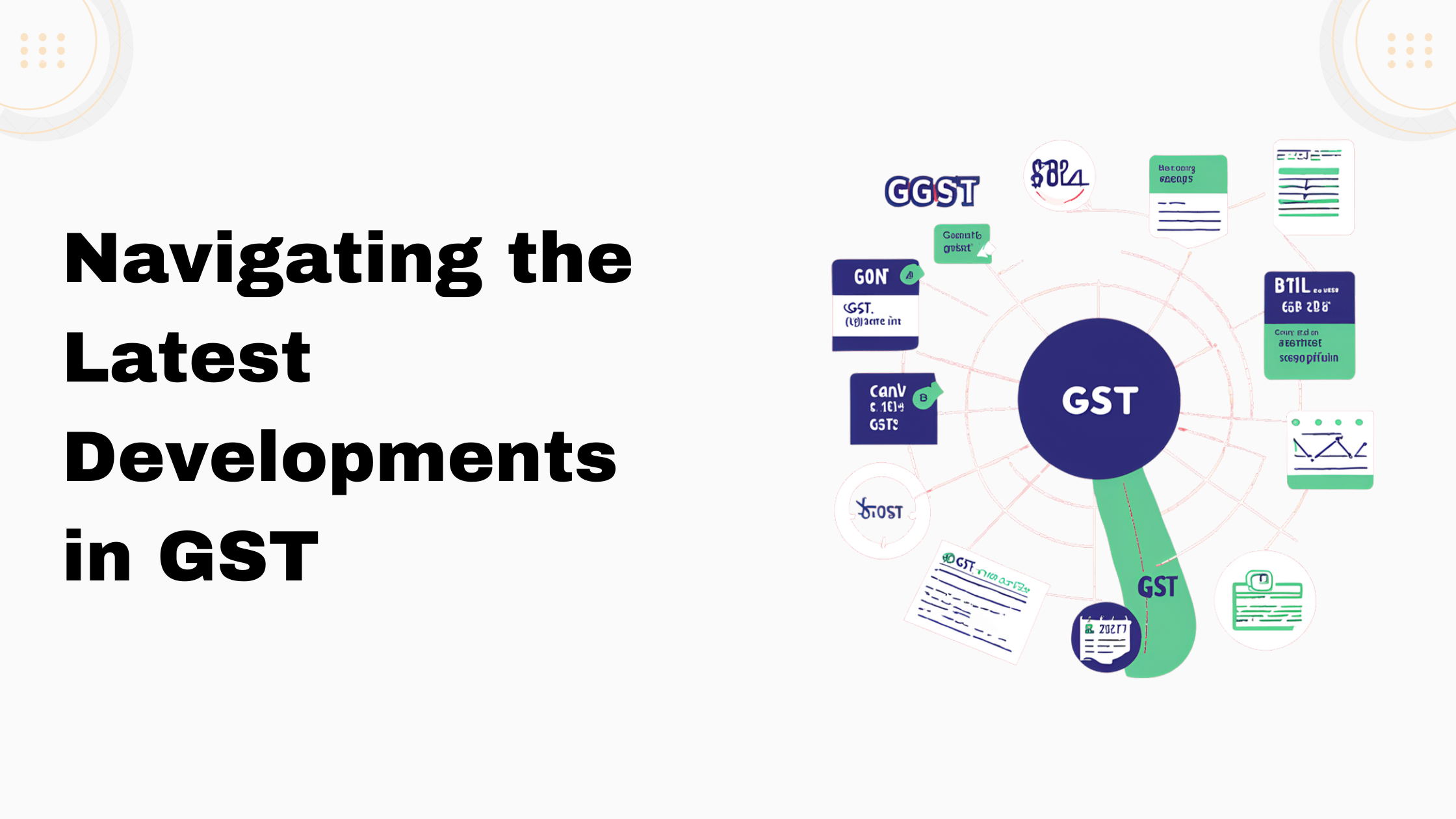In recent months, significant strides have been made in the administration and enforcement of the Goods and Services Tax (GST) in India. These changes encompass new directives from the Central Board of Indirect Taxes and Customs (CBIC), critical judicial rulings, and the operationalization of the GST Appellate Tribunal. Despite GST being a relatively young system, it continues to evolve rapidly, reflecting its pivotal role in India’s economic framework. This article aims to provide a comprehensive overview of these latest developments.
New CBIC Instructions on GST Investigations On Latest Developments in GST
On March 30, 2024, the Ministry of Finance issued Instruction No. 01/2023-24-GST (Inv.), introducing a set of guidelines for CGST officers. These instructions are designed to ensure that investigations are conducted methodically and equitably, thereby enhancing transparency and accountability. Key highlights include:
- Approval and Oversight:
- Search Authorization: Searches must be approved by the Principal Commissioner or the zonal Chief Commissioner based on intelligence reports.
- Post-Search Procedures: The same authorities are responsible for overseeing all subsequent processes related to the search.
- Coordinated Investigations:
- Actions must be coordinated with the Directorate General of GST Intelligence (DGGI) or the State GST department to ensure comprehensive and non-overlapping investigations.
- Mandatory Approvals:
- Investigations require the Principal Commissioner’s approval. In sensitive cases involving major corporations or new tax interpretations, prior approval from the zonal Chief Commissioner is needed.
- Avoiding Duplicate Investigations:
- Before initiating a new investigation, it must be confirmed that no other office is already investigating the same issue with the same taxpayer to prevent concurrent proceedings.
- Professional Communication:
- Investigations involving listed companies, PSUs, or government bodies should start with formal letters rather than summons, unless justified by specific circumstances.
- Efficient Use of Digital Information:
- Officers should not request information already available on the GST portal from taxpayers.
- Clarifications on ITC:
- Summons should not be used to broadly question the legitimacy of availed Input Tax Credit (ITC) without clear grounds.
- Timely Investigations:
- Investigations should be concluded within one year, with prompt issuance of show cause notices and closure reports to avoid unnecessary delays.
Notable Judicial Precedents
Two recent judicial rulings have provided significant clarity on GST-related disputes, reinforcing taxpayer rights and outlining procedural expectations:
- Great Heights Developers LLP v. Additional Commissioner, CGST & Central Excise, Chennai:
- Issue: Delay in filing an appeal due to medical reasons.
- Judgment: The Madras High Court accepted the appeal despite a 24-day delay beyond the 120-day limit, acknowledging the taxpayer’s serious health condition as a valid justification.
- Qualcomm India (P.) Ltd. v. Deputy Commissioner (ST)(FAC):
- Issue: Interest on delayed refund of unutilized ITC.
- Judgment: The Telangana High Court mandated that the department pay interest on delayed refunds, emphasizing that interest accrues automatically if refunds are not processed within the statutory period.
Establishment of the GST Appellate Tribunal
A landmark development in the GST framework is the appointment of Justice (Retd.) Sanjaya Kumar Mishra as the first President of the GST Appellate Tribunal (GSTAT) on May 6, 2024. The establishment of the GSTAT is a significant step toward more efficient dispute resolution. Key aspects include:
- Principal Bench: Located in New Delhi, consisting of the President, a Judicial Member, a Technical Member (Centre), and a Technical Member (State).
- State Benches: Thirty-one benches across various states, each with two Judicial Members and two Technical Members.
The operationalization of GSTAT also revives the timeline for filing appeals, which had been suspended due to the tribunal’s absence. According to the removal of difficulty Order No. 09/2019-Central Tax, the countdown for the appeal period will start from the date the President assumes office. However, further clarification from the CBIC is awaited regarding the infrastructure and GST portal readiness.
Conclusion
The latest developments in GST represent continuous efforts to refine and improve the system. The new CBIC instructions aim to ensure more structured and fair investigations, safeguarding taxpayer rights through detailed procedural guidelines. Judicial precedents reinforce these rights, providing clarity on crucial issues such as appeal timelines and interest on delayed refunds. The establishment of the GST Appellate Tribunal marks a new era in dispute resolution, promising more timely and just outcomes. As GST continues to evolve, it is essential for all stakeholders to stay informed about these changes to navigate the system effectively.
Read More: Questions to ask before investing in tax-saving schemes

